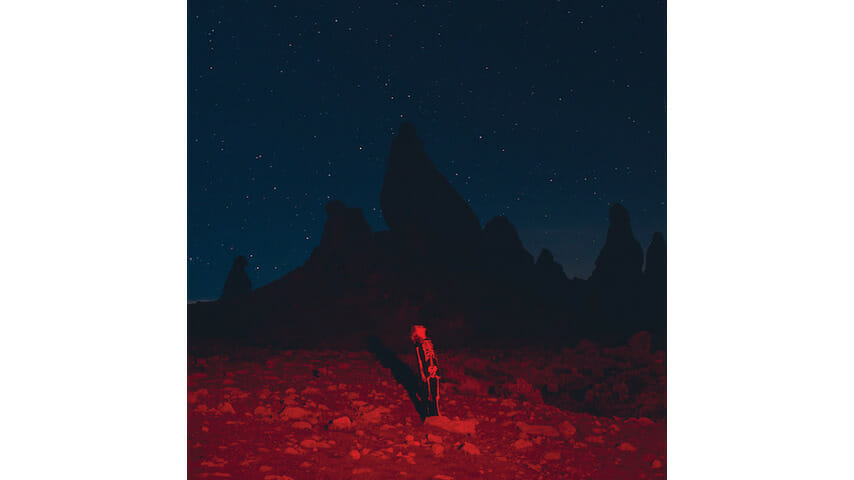Phoebe Bridgers Captures the Mundanity of Modern Sadness on Punisher
The L.A. singer-songwriter’s sophomore album is noisier and more upbeat than her debut

Phoebe Bridgers is blessed with many musical gifts. She is a skilled composer, of course, with the vision to turn her downcast folk songs into gorgeous, glittering gut-punches. She is, apparently, a willing and able collaborator, as evidenced by her work with Julien Baker and Lucy Dacus in boygenius, Conor Oberst in Better Oblivion Community Center and others. And she’s an engaging and versatile performer, even in pajamas. Yes, pajamas. And pajamas again.
Her sophomore album Punisher cements what may be Bridgers’ most understated gift of all: her seemingly innate ability to capture the mundanity of modern sadness in song. Tucked in among the record’s memorable melodies, clever arrangements and impressive guests are a steady stream of details that lend plainspoken perspective to Bridgers’ emotional highs and (mostly) lows. These kinds of details ground her work in the same way shading makes a still life painting pop. They make them feel not just sad, but real.
As an example, look back to “Funeral,” one of the highlights of Bridgers’ 2017 debut Stranger in the Alps. It’s a devastating tune about death and depression, and if it ended at the three-minute mark, it would still be a stunner. But she tacks on an extra bit that contextualizes the rest of the song: “It’s 4 a.m. again,” she sings flatly, “and I’m doing nothing again.” And all of a sudden … you’re there. Because you’ve been there (probably), and because Bridgers has been there, too, and she knows how to make this song about a stranger’s overdose into a highly relatable moment. The story now has a place to sit—in a dark room, screen glowing, silence deafening, thoughts racing. Again.
Those kinds of moments pop up all over Punisher, which is generally noisier and more upbeat than its predecessor. The album’s clear standout (and one of the year’s best songs), “Kyoto,” features Bridgers’ crunchiest guitar riffs yet, a soaring chorus and the travails of dealing with someone who can’t quite get their shit together juxtaposed with a wander through a 7-11 and trip to the suburbs to stare at chemtrails. “I don’t forgive you,” she sings as a horn arrangement crests over this mind-numbing scene, “but please don’t hold me to it.” Later, in “Moon Song,” Bridgers traces the blurry boundaries of a complicated relationship before laying it all out in the final verse: “You are sick and you’re married and you might be dying,” she sings over a small crescendo, “but you’re holding me like water in your hands.” The word “married” practically leaps from the song, instantly imbuing it with an unsettling feel.
Elsewhere, Bridgers kicks off the album’s title track with a bleak couplet (“When the speed kicks in, I go to the store for nothing”) that leads to reflections about her own Elliott Smith fandom, and she resembles the man himself on “Savior Complex,” a baroque indie-pop waltz laced with string parts that flutter and swoop gracefully. Prominent fiddle (played by Nickel Creek’s Sara Watkins) and banjo give “Graceland Too” a distinctly twangy vibe, and vocals by Baker and Dacus make it sound like a boygenius outtake. Meanwhile, the twinkling expanse of “I See You” echoes Punisher’s cover art, which shows Bridgers staring up at a dark sky full of stars and possibility. “I get this feeling whenever I feel good it will be the last time,” she sings. “But I feel something when I see you now.”
-

-

-

-

-

-

-

-

-

-

-

-

-

-

-

-

-

-

-

-

-

-

-

-

-

-

-

-

-

-

-

-

-

-

-

-

-

-

-

-








































